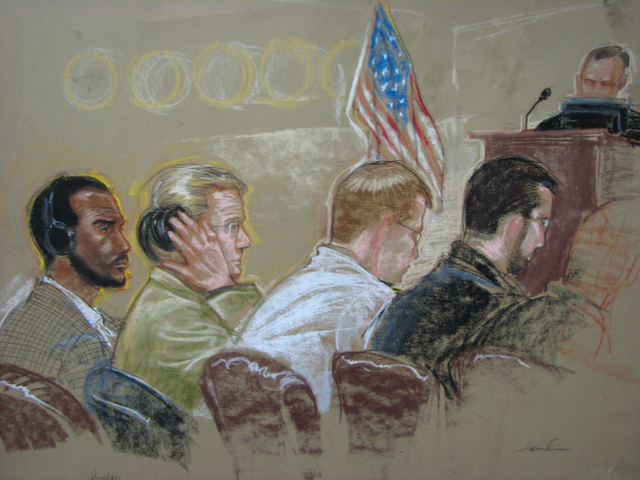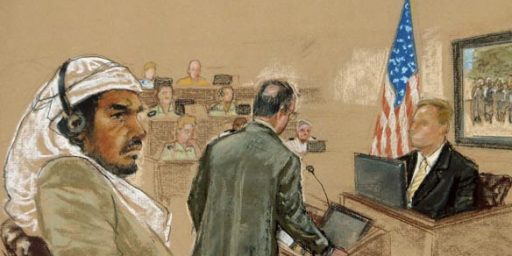Supreme Court to Rule on Military Tribunals, Again
The Supreme Court has agreed to take the case of Osama bin Laden’s driver, who argues he should not be subjected to trial before a U.S. military tribunal.
Court takes up challenge to terror tribunals (AP)
The Supreme Court agreed Monday to consider a challenge to the Bush administration’s military tribunals for foreign terror suspects, a major test of the government’s wartime powers. The case also presented the first conflict for new Chief Justice John Roberts. Justices will decide whether Osama bin Laden’s driver can be tried for war crimes before military officers in Guantanamo Bay, Cuba. As an appeals court judge, Roberts joined a summer ruling against the driver, Salim Ahmed Hamdan. He did not participate in Monday’s action, which put him in the difficult situation of sitting in judgment of one of his own rulings. Lawyers for Hamdan were expected to ask Roberts to participate in the case to avoid a 4-4 tie.
The court’s intervention was a surprise. In 2004 justices took the first round of cases stemming from the government’s war on terrorism. Justice Sandra Day O’Connor, who is retiring, wrote in one case that “a state of war is not a blank check for the president when it comes to the rights of the nation’s citizens.”
The announcement of the court’s move came shortly after President Bush, asked about reports of secret U.S. prisons in Eastern Europe for terrorism suspects, declared anew that his administration does not torture suspects.
Roberts’ recusal is an interesting question. It doesn’t strike me that he has any particular conflict of interest here, as he is not a party to the case. That he ruled on the case as an appelate court judge would seem immaterial, as he’s in the same status now.
I’ve got no strong views on whether foreign terrorists should be tried in American military courts, although I would prefer that they be held in the theater in which they are captured and reasonably quickly rather than years later in a third country.
Update: An anonymous commenter below argues that it is a bright line rule that ruling on one’s own decisions can not happen. I’m not sure of this but it caused me to reconsider my view. I tend to think of Supreme Court cases as abstract rulings on general legal principle; that’s because that’s what they are from the standpoint of society. Regardless, they are also–by Constitutional dictate–also cases in controversy involving real life people. From the perspective of deciding general legal principle, I’ve got no problem with a promoted judge ruling on his own case. From the perspective of Hamdan, though, it is indeed highly problematic as the deck is essentially stacked against him.





I’m guessing Roberts recused himself because there is a reasonable appearance that he has prejudged the case. No?
you’re generally not supposed to rule on appeals to your own decisions. And by generally, I mean that it’s a matter of ethical cannon that you can’t, aka a big bright line rule. It also makes sense as a general principle.
I would prefer that they be interrogated and shot, actually. A lot less hassle.
Right on Scott